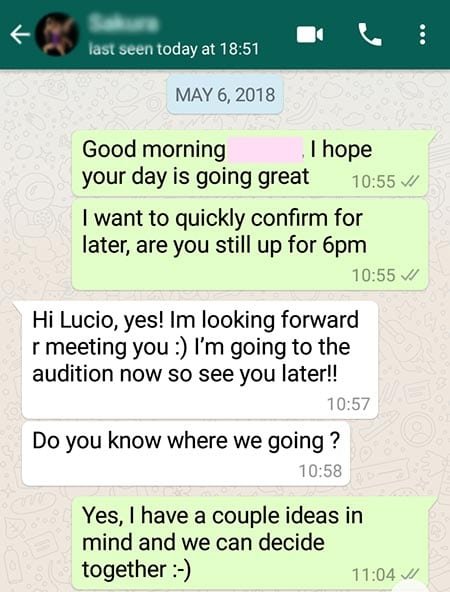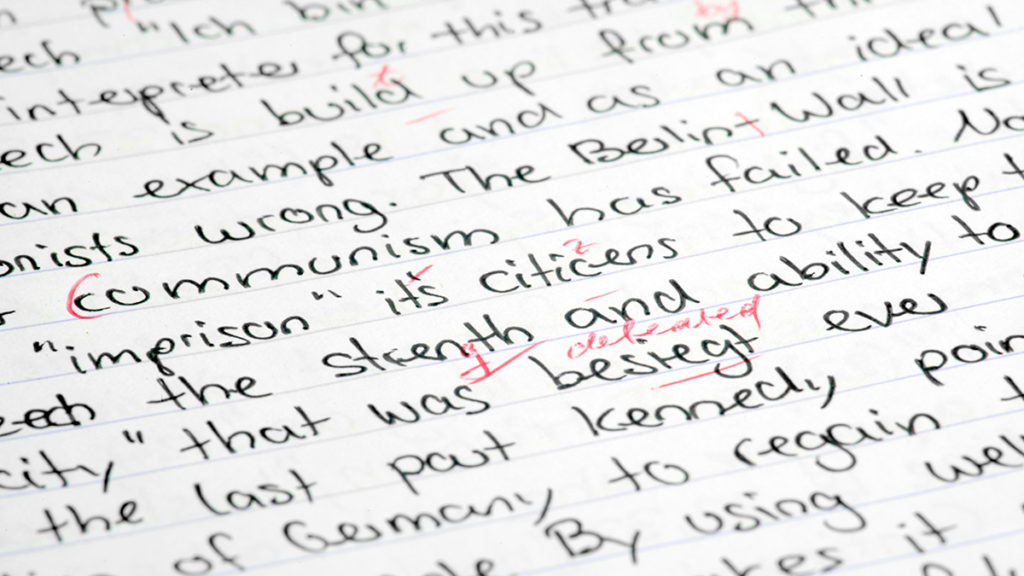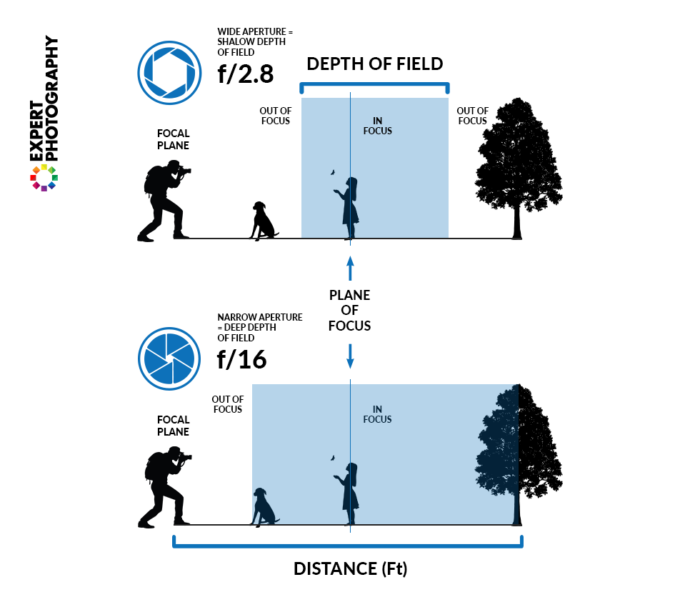Equality Vs. Equity | Part 1 - In The Classroom
Okay I want to spend some time talking about the differences between equality and equity particularly equality and equity in the classroom since I'm a student. Here's a way to illustrate it if you do a Google search online and doesn't have to be Google you can use the Tor or any other search engine on the terms equality versus equity and then you go to images a couple of images will will show there's a comparison image where you have people of different heights, a really tall person and medium person and short person and they're at a ball field trying to look in over the outfield fence and the little guy of course can't and so the next frame you have them all standing on a box.

The trouble is the little guy still can't see over the fence but that's equality because everyone is standing on the same box a box is the same height and everybody's getting the same shot. However equity is a little bit different because equity tries to take into account the fact that people don't always start from the same place so equity tries to balance the fact that people are starting from it's a different place and getting them to the same goal.
So the idea of equality is to treat everyone the same, whereas we can think of equity as getting everyone to the same place in spite of whatever deficits they may have come into that classroom with, so I think that kind of sums up the differences between the two and illustrates of.
Pretty well the next thing I would like to talk about is ethics in the classroom as it pertains to equality and equity. Now this is for some reason sometimes kind of controversial equal equality has sort of, you know, been bantered around and certain factions on the right think that inequality looks one way and factions on the left think equality looks another way and they never really can come to any agreement about it but in the classroom it's very important because particularly with older students with the students that I most often accompanied with at University of Cebu, if my teacher treated every student equally it would be impossible for him to go out of his way to help certain students it would probably harm certain students if I was treated everyone equally. What he have to do is he have to take into account the individual students, particularly needs, goals, and an abilities and that's tough to do at a university because at a our university, more than any other place in higher education we're getting more and more and more students who are beginning college with greater and greater deficits and that doesn't mean that they can't be successful in college.
I've seen it over and over again. I myself and kind of i'm soon a product of the university and i started with some pretty big deficits in university. I was not a good student and in fact I was less than a good student. Make way less and then that was probably frustrating for some of my professors but I had very kind loving for us who brought me along and decided not to treat me like everyone else now.
I was just reading something today in a blog about faculty development for community college adjunct faculty, and they were commenting in this, in this article that one of the problems with adjunct faculty is you get adjunct faculty right out of college or right out of graduate program. They don't have a lot of teaching experience and then they put them into community colleges, and community colleges use are seventy to eighty percent of their faculty and those are adjuncts and as a result fifty percent or more of their classes are taught by part-time faculty and you have students who are coming into the class into school with greater deficits and then you have instructors who aren't really up to speed on the art and science of effective teaching.
And that has an impact so when we think of equity we need to think particularly in a community college setting we need to think of students as coming in with a variety of skill sets and a teacher, the job of a teacher in moving this along because the job of every teacher is to teach their students and to move them along through that process. You have to be able to treat them equitably, and equity is therefore a very important concept. Okay I'll spend a little bit of time here writing about best practices for equity in the classroom. I'm gonna focus on equity I could write a little bit about equality but I think equity is really a much more important concept because if we treat every student the same way.
We're going to miss a lot of things and students who may not have to suffer may suffer because you know we grade them on the same continuum or you know, don't understand them in terms of how far they've come whatever and I know there's debates about that and I'll leave that for another discussion another day.
An the English department of UNIVERSITY OF SAN CARLOS, what they've decided to do is they have a little handout. Looks like it's a handout from a training maybe faculty development session or something and the handout goes into it has a bunch of bullet points about what what are best practices for equity in the classroom.
One of the first things it mentions is that we need to foster community so create a community of learners within the classroom
Ask students to share information with each other and ask them to rely on each other for this information they miss also a curriculum.
Curriculum is a very important part of equity in the classroom so some of the things that suggests are using at least 12 point font for handouts particularly in the community colleges.
From a STI college it looks like it's a community college type website and they're focusing on ideas to make to make the information that you hand out to students accessible to all students so students who maybe have some seeing difficulties wear glasses 12-point font is going to help out a lot more than 8.5 for example change activities.
Often they suggest that you change activities every 15 to 20 minutes now I know in my own analysis, this is something our teachers struggle with particularly when they're trying to explain some idea. They teach philosophy so an idea like Plato's theory of the forms I mean there's a lot of research a lot that's gone into 2500 research 2500 years of research into the theory of the forms and if our teachers trying to explain that in a two-hour class period or an hour long class period there are certain things that they have to do. They have to do quite a bit of lecturing sometimes but they may try and even break those up by lecturing for a few minutes and then asking a question, try to ask a question that would be related to the topic and trying to get students to think in that direction.
So that's a strategy that every teachers can use as well. Develop a template or outline for writing assignments especially in lower level classes and this is something you really have to work on. If you've tried various different prompts for your papers maybe you should just give them a templatea and how that works.
I hope you'll be glad you found this. You can continue to try to become the better teacher than you've almost wanted to be. So encouraging students to stay in class now in a community college where most community colleges are very concerned about student retention because the research says students starts and three four five six years later many of them haven't received a degree so you've got students who begin in say 2003 by 2009 only like thirty or forty percent in those different studies that have numbers are a little different but around that so they say that community colleges may have like a 30-percent of retention rate and college administrators don't like that and it's important for instructors to be part of the solution and treat students with equity and one of the ways that they can do that and I was thinking about this and talked about this earlier the idea that students don't come to the community college setting with this at the same level of achievement the same starting place .
So you have some students who start with quite a deficit and they have to do remedial English or remedial math. My teachers themselves had to do remedial math and wasn't a math whiz so they think it's an important thing to know that they as community college teachers have to be able to bring those people up to where they can graduate and be successful in their careers and and we could do it because most students have the capability of doing really excellent work if the standards have put before them.
Most students I think can and will if they're inspired to do so turn in excellent work.
so that is some about the best practices. Okay, the last thing that I really want to talk about is a book that discusses equity and and the word equity is not used, but in Plato's Republic in book one,the question is the question that's being discussed between Socrates and his interlocutor through Symmachus. They're discussing justice, of course glaucum joins in and others join in justice what is justice and you know we don't think a lot about that.
My teacher told me in a philosophy classes when we talk about justice there's a whole field of endeavor known as criminal justice, where justice rarely happens and he say that because you can look at justice in a lot of different ways but one of the ways to look at justice is how much equity is given to each individual party involved, from the family of the offender to the family of the victim etc etc.
So justice isn't is a pretty high bar. So part of the discussion in in book one of the "Republic on justice" is where through silica says well justice is paying back what is owed or you owe somebody. And socrates asked he says okay paying back what you owe something well that sounds nice but if someone loans you their weapons or as you keep their weapons for them for a period of time they returned to you and they're obviously insane should you give them the weapons back if we go by your definition of justice you need to give them their weapon back and for Sigma kisses well no no he's clearly insane so this is so and this illustrates of course a linkous which is when Socrates is doing this in depth questioning to his interlocutors about together the various things that are going on but regardless the idea of justice is hard to get our hands around so when we translate that into the classroom, I think it's important to realize that for justice if we want justice if we weren't equity in our classrooms, probably the best way to go about it and to think about it is to think of equity in terms of a destination that we're striving for and the journey towards that destination is the truly valuable part of equity because equity is a pretty high bar and we may not be able to reach it but if we strive for it in our classroom teaching, the way we treat students in the way we interact with students in the way we try and do office hours and contact and interact with students and make the classroom learning more fun and interactive all of that leads to this idea of equity and we can't have equity without it so think of equity as a goal and the journey to the goal as what is valuable.
Thank you.
Thank you for your support
CONNECT WITH ME ON FACEBOOK MESSENGER
JUST CLICK HERE!







Comments